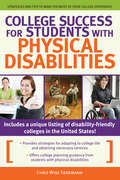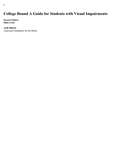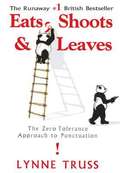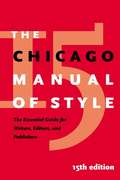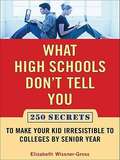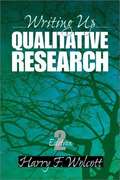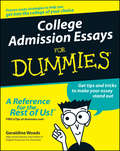Special Collections
Student Resources
- Table View
- List View
College Success for Students with Physical Disabilities
by Chris Wise TiedemannCollege Success for Students With Physical Disabilities is a college planning guide for students with physical disabilities and chronic medical conditions. Students will learn about their rights under the laws governing education and disability, self-advocacy, choosing a college, how having a physical disability affects admissions testing, the increased responsibilities in college, and how to make sure they get everything they need. The book contains forms, checklists, interviews with other students, advice from college disability services personnel, and profiles of disability-friendly colleges across the United States.
College Bound
by Ellen TriefThe transition from high school to college is a significant turning point in a student's life, and this easy-to-read guide gives students the tools they need to select and apply to college and move forward with skill and confidence. Everything a student needs to know is included, from developing organizational, note-taking, test-taking, and study skills to managing living space, student-teacher relationships, social and academic life, and extracurricular and leisure time activities is included.
Eats, Shoots and Leaves
by Lynne TrussEnglish spelling, punctuation, and grammatical terms, (e.g., "stop" for our "period") are deliberately retained in this U.S. edition, as the publisher states in his Note. Chapters on present and former use of the comma, apostrophe, colon, semicolon, dash, ellipses, other punctuation marks presented with humor. You'll laugh and be entertained as well as edified. People who read by listening will have a problem because the words will sound the same whether they are spelled nd punctuated correctly or not, e.g., d o n apostrophe t or d o n t. You may need to have punctuation spoken, at least for the chapter on the apostrophe, or have someone read to you and explain.
The Chicago Manual of Style (15th Edition)
by University of Chicago PressIn the 1890s, a proofreader at the University of Chicago Press prepared a single sheet of typographic fundamentals intended as a guide for the University community. That sheet grew into a pamphlet, and the pamphlet grew into a book--the first edition of the Manual of Style, published in 1906. Now in its fifteenth edition,The Chicago Manual of Style--the essential reference for authors, editors, proofreaders, indexers, copywriters, designers, and publishers in any field--is more comprehensive and easier to use than ever before. Those who work with words know how dramatically publishing has changed in the past decade, with technology now informing and influencing every stage of the writing and publishing process. In creating the fifteenth edition of the Manual, Chicago's renowned editorial staff drew on direct experience of these changes, as well as on the recommendations of the Manual's first advisory board, composed of a distinguished group of scholars, authors, and professionals from a wide range of publishing and business environments. Every aspect of coverage has been examined and brought up to date--from publishing formats to editorial style and method, from documentation of electronic sources to book design and production, and everything in between. In addition to books, the Manual now also treats journals and electronic publications. All chapters are written for the electronic age, with advice on how to prepare and edit manuscripts online, handle copyright and permissions issues raised by technology, use new methods of preparing mathematical copy, and cite electronic and online sources. A new chapter covers American English grammar and usage, outlining the grammatical structure of English, showing how to put words and phrases together to achieve clarity, and identifying common errors. The two chapters on documentation have been reorganized and updated: the first now describes the two main systems preferred by Chicago, and the second discusses specific elements and subject matter, with examples of both systems. Coverage of design and manufacturing has been streamlined to reflect what writers and editors need to know about current procedures. And, to make it easier to search for information, each numbered paragraph throughout the Manual is now introduced by a descriptive heading. Clear, concise, and replete with commonsense advice,The Chicago Manual of Style, fifteenth edition, offers the wisdom of a hundred years of editorial practice while including a wealth of new topics and updated perspectives. For anyone who works with words, whether on a page or computer screen, this continues to be the one reference book you simply must have. What's new in the Fifteenth Edition: * Updated material throughout to reflect current style, technology, and professional practice * Scope expanded to include journals and electronic publications * Comprehensive new chapter on American English grammar and usage by Bryan A. Garner (author of A Dictionary of Modern American Usage) * Updated and rewritten chapter on preparing mathematical copy * Reorganized and updated chapters on documentation, including guidance on citing electronic sources * Streamlined coverage of current design and production processes, with a glossary of key terms * Descriptive headings on all numbered paragraphs for ease of reference * New diagrams of the editing and production processes for both books and journals, keyed to chapter discussions * New, expanded Web site with special tools and features for Manual users at www.chicagomanualofstyle.org
College Students with Learning Disabilities
by Susan A. VogelThis handbook answers such questions as: What is a learning disability? What technology might help a student with an LD? How can someone get through college with an LD? This book provides clear answers to questions which admissions officers often ask. It also includes several appendices listing resources which can help LD students do well in college and other higher education settings. Although teachers are not mentioned in the title, they may find this book to be a welcome resource, especially when mentoring highschool students.
What High Schools Don't Tell You
by Elizabeth Wissner-GrossFrom the author of What Colleges Don't Tell You, 250 secrets for raising the kid colleges will compete to acceptThe headlines prove it: Competition for admission to America's top colleges is more cutthroat than ever. Gone are the days when parents could afford to let high school guidance counselors handle the admissions process alone-gone, also, are the days when a student could wait until senior year to prepare for it. As Elizabeth Wissner-Gross, a highly successful educational strategist, knows from working for over a decade with hundreds of middle- and high school students and their parents, if you want to raise a kid colleges will compete for, you must act, early and aggressively, as opportunity scout, coach, tutor, manager, and publicist-or be willing to watch that acceptance letter go to someone whose parents did. What High Schools Don't Tell You reveals 250 strategies to help parents stack the admissions deck in their kid's favor, gleaned from Wissner-Gross's expertise and from interviews with parents of outstandingly high achievers-strategies that most high school guidance counselors, principals, and teachers simply don't know to share. From identifying exactly which academic credentials will wow an admissions committee to which summer programs and extra-curriculars can turn an ordinary applicant into a must-have, What High Schools Don't Tell You demonstrates how hands-on parental involvement early in a child's high school career is essential to achieving college admissions success.
Writing Up Qualitative Research
by Harry F. WolcottThis author provides practical advice on how to write up research results gleaned from qualitative studies.
College Admission Essays For Dummies
by Geraldine WoodsThe competition to get into your college of choice has never been fiercer. Unfortunately, much of the application process is out of your hands. But one major aspect of the admission process is under your control-your personal statement. Your application essay provides you with the opportunity to let your true, unique and totally irresistible self shine through. College Admission Essays For Dummies is your total guide to crafting application essays that will make people sit up and take notice. It demystifies the authority figures who'll judge your work, helps you decide what to write, and then arms you with the knowledge and skills you need to write your essay on time and on target. Step by step, it walks you through the entire essay-writing process, offering priceless tips on how to: Choose the best topic, tone, and structure for your essay Capture the crucial stories that reveal who you are Avoid common pitfalls that can sabotage your application Overcome writer's block Know how to respond to unusual and off-the-wall essay questions Write successful short answers to specific application questions College admission guru Geraldine Woods punctures common myths about application essays and tells you what you absolutely must do to write a good one. With the help of many inspiring and instructive killer essays, she shows you how to: Put yourself in the right mental state for writing well Gather ideas, focus on a topic and choose the best structure for your essay Use topic sentences, detail, and strong introductions and conclusions Write a rough draft Show rather than tell your story Make sure your spelling and grammar are pitch perfect Create smooth transitions and avoid repetitions Your college application essay is your chance to show the committee that you're more than just a statistic. Let College Admission Essays For Dummies show you how to write "admit-clinching" college essays.
